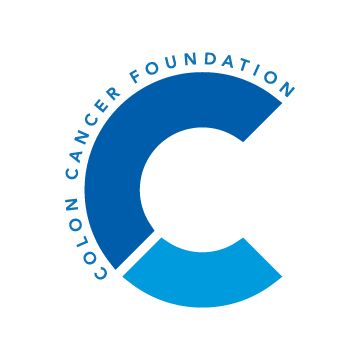
Addressing Survivorship Issues in Early-Age Onset Colorectal Cancer

Transcript:
Kristie L. Kahl: How do we define survivorship in colorectal cancer?
Susan K. Peterson: Most people now define survivorship as anyone who has a diagnosis of cancer and is still alive and either in active treatment or finished with treatment and living long after the diagnosis. So, it really recognizes that all patients who are diagnosed are survivors. And the definition of survivor also can extend to caregivers and the people closest to them because recognizing that those people are also experiencing the diagnosis of cancer because it does impact not just the individual but also the family as well.
Kristie L. Kahl: Colorectal cancer is occurring at a much younger age. How do survivors of early-age onset colorectal cancer vary from those who are older?
Susan K. Peterson: Colon cancer, like many cancers, is one that we often don’t see at younger ages. This is something that is a unique occurrence in the life of a person who is younger. This has some significant impacts on a person’s life. At a younger age, you’re focused on important milestones in life, like completing school, finding a job, getting your career going, forming intimate relationships, starting a family. So, a diagnosis that is unexpected like early-age onset colorectal cancer can be an unexpected interruption in a lot of these important milestones. That’s different from many of their peers who are going through many of these same life experiences. So, it’s unusual, it’s something that is unexpected.
For many persons who have been diagnosed with young onset colon cancer, some of the struggle has started at the time of getting a diagnosis. So, many have reported that they have either not been aware of symptoms they may be experiencing that are related to colon cancer, or perhaps they’ve sought opinions from several doctors or health care providers before they were diagnosed. So, the combination of that can result in some frustration and anxiety about being diagnosed with something this unexpected and the experience of undergoing a misdiagnosis at times can also be very challenging. So, really it brings up areas where these individuals may need some special support in unique areas, where perhaps most people who are diagnosed with colon cancer at older ages, may not need it.
Kristie L. Kahl: Are there resources for these survivors?
Susan K. Peterson: So, first of all, I would encourage any young onset colon cancer survivor to speak to their health care team about resources and support that may be available. (For example, resources for psychological support, because survivors experience times where they might be feeling anxiety or depression. So, getting professional help to deal with those feelings can be very helpful. There may be other types of support as well. And again, getting assistance from your social worker, finding out how to get assistance with things like childcare or transportation, things like that can be very helpful. So, be very open about your needs and talk to them.
There are a number of national organizations, too, that provide resources. Many national organizations focused on colorectal cancer, now have taken on the task of really learning about early onset colon cancer and making resources available to people via their web sites and other resources as well.
And the Colon Cancer Foundation has been sponsoring an annual summit for early-age onset colorectal cancer. This year it is going to be held in April in New York City, and it is an opportunity; it’s an educational event; it’s a networking event; it’s an opportunity for survivors, their caregivers and their families, as well as health care professionals to come and learn and to network and help to understand what’s available and what’s on the horizon as far as early onset colon cancer is concerned.
The Colon Cancer Foundation could also be a good touch point in terms of identifying other resources that might be out there, too. But really, talk about your questions, seek information, be proactive. That is really the best thing you can do.
Kristie L. Kahl: What more can we be doing?
Susan K. Peterson: Some of the biggest needs that have been described in this area are making health care providers more aware of the fact that this is an increasingly common diagnosis among younger people. So that we avoid situations that we’ve heard from in that past of going to health care providers, perhaps having symptoms, and not pay attention to them as they should have.
The other area, too, is educating our younger people that you might be having symptoms that seem unusual that are related to colon cancer. Be aware of them. Be aware of your body. Go get checked out. Younger people may have less experience with the health care system and may not be as proactive in terms of prevention or early detection self-care. Pay attention to your body and get those symptoms checked out. And if you don’t get an answer that helps to resolve the problem, go find someone else. Try to be proactive on your own behalf.
That’s a lot of the efforts on behalf of the Colon Cancer Foundation and many others of us who are working in the space are really trying to do a dual-prong effort in terms of reaching everyone to try to help impact this disease.
Kristie L. Kahl: How does the multidisciplinary approach play a role in the survivorship of these young adults?
Susan K. Peterson: When an individual completes their treatment for cancer, oftentimes they will go back to receiving care under their primary physicians. This, for all areas of cancer survivorship, the role that the primary care physician plays in long-term care of cancer survivors is an area of great interest. People at cancer centers will provide resources and outreach to primary care to help them support their patients. Primary care physicians also can become more aware and educated about care for long-term cancer survivors. They may have unique needs and long-term effects from their treatment and care, as well as other psychosocial and emotional needs.
Kristie L. Kahl: What would you say is your biggest piece of advice for an individual who is now a survivor of colorectal cancer?
Susan K. Peterson: One important area for individuals who are diagnosed with early onset colorectal cancer is, in addition to continuing to be proactive about their needs and questions and getting information, help, and support, is to discuss this within your families. If you are diagnosed with colon cancer at a young age, your family members are recommended to undergo screening at earlier ages than is recommended for the general population. If there is a potential for a hereditary cancer condition in the family, sharing information among family members and encouraging them to get genetic testing if that is warranted is also important. Share this information within families. Cancer is not an easy topic to bring up in your family. Some people might not want to talk about it because they’re concerned about their own worries about developing cancer. But try to have those conversations that might be difficult and spread the word because it would be a tremendous help in preventing additional cancers within your family.
Transcript edited for clarity.




